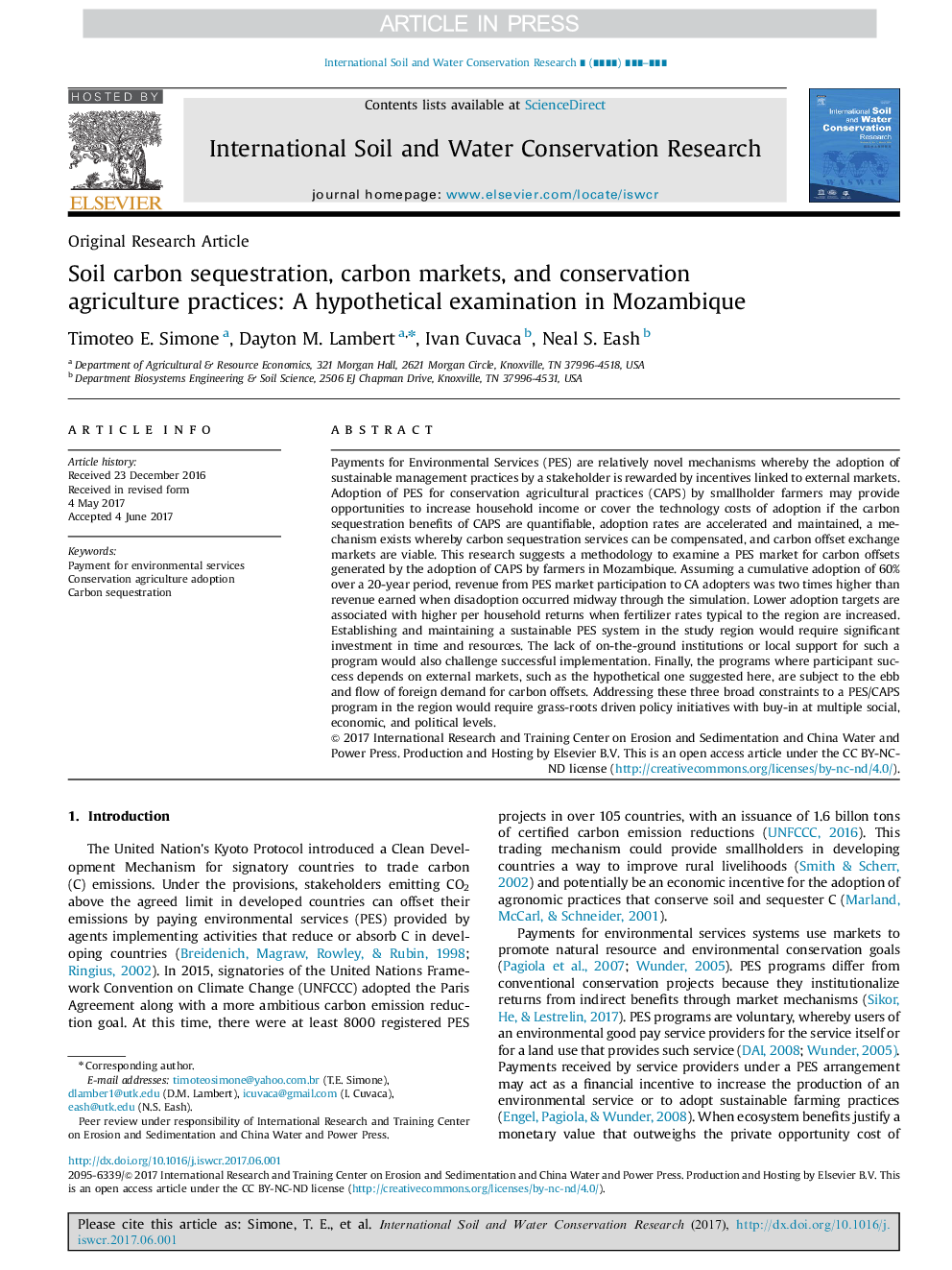ترجمه فارسی عنوان مقاله
تسویه کربن خاک، بازار کربن و روش های حفاظت از زراعت: معاینه احتمالی در موزامبیک
عنوان انگلیسی
Soil carbon sequestration, carbon markets, and conservation agriculture practices: A hypothetical examination in Mozambique
| کد مقاله | سال انتشار | تعداد صفحات مقاله انگلیسی |
|---|---|---|
| 93650 | 2017 | 13 صفحه PDF |
منبع

Publisher : Elsevier - Science Direct (الزویر - ساینس دایرکت)
Journal : International Soil and Water Conservation Research, Volume 5, Issue 3, September 2017, Pages 167-179
ترجمه کلمات کلیدی
پرداخت خدمات محیط زیست، حفاظت از تصویب کشاورزی، تداخل کربن،
کلمات کلیدی انگلیسی
Payment for environmental services; Conservation agriculture adoption; Carbon sequestration;

